Why Robert Hill has shunned the directors’ club in favour of turning an energy giant green
Former defence minister Robert Hill doesn’t miss the slings and arrows of politics, and as chair of Viva Energy he’s content to concentrate on one company’s green transition.
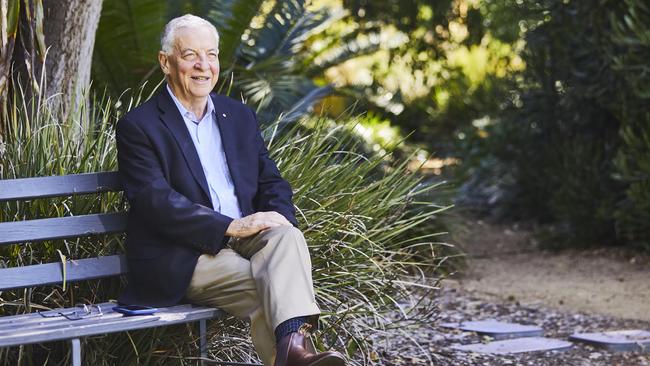
Robert Hill gives a wry smile when asked about his transition from a long career in politics to listed public company life and why he has chosen to take just a single chairmanship, defying the temptation to do more.
“I shouldn’t say it but there is almost a NED (non-executive director) industry these days. And I didn’t want to be part of the NED industry,” he muses. “I think there is more satisfaction in working towards achieving longer term outcomes and successes, rather than just a short term application of your skills and then you move on to the next one.”
The ex-South Australian Liberal senator, who served as John Howard’s defence and environment minister, became chair of Viva Energy in 2018.
Dutch trading giant Vitol and the Abu Dhabi Investment Council sold down their shareholdings in Viva – the owner of oil and gas giant Shell’s Geelong refinery and its Australian wholesale business and service station network – in an initial public offering of the company that was the nation’s biggest public float in four years.
Hill, who as a young lawyer once did legal work for Shell, had become a director of Viva four years earlier when Vitol and ADIC first bought the Shell assets.
“Pre-public, when I first joined the business, there were those who looked at me and said ‘Why would a greenie like you want to come into an industry like this?’ And I would say ‘Because I am going to help you change’,” the Adelaide-based Hill says in his first wide-ranging interview as Viva chair in the firm’s Melbourne head office.
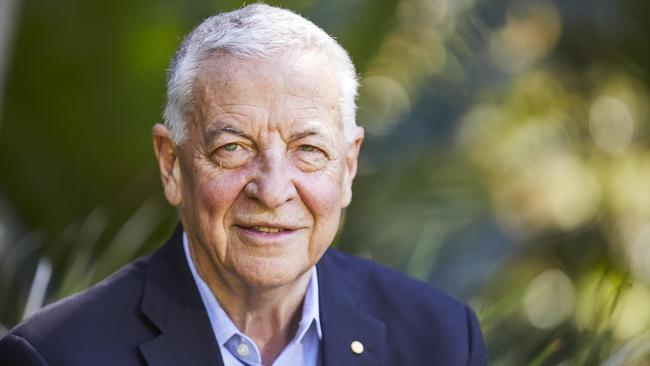
“Most people find me confusing because I’m one of the few people in the world that seems to specialise in the environment and defence.”
Hill says he was happy to become Viva’s chair because of his expertise in what he calls “public policy-business interface”.
After leaving politics he was appointed ambassador to the United Nations in April 2006 for three years. For the past decade he has also chaired a private resource recovery company known as Re Group and retained the exotic title of chairman of counsellors at Dragoman, a firm that specialises in advising multinationals on sovereign risk issues and dealing with governments worldwide. Just don’t call them lobbyists.
Hill is quick to acknowledge he doesn’t have a broad experience of listed public company boards, but he is willing to make a few polite observations about the NED world as he sees it, gleaned from his time at Viva and decades in politics dealing with listed firms.
“It is all different out there and the relationship with the chief executive and other executives seems to differ a lot from company to company. That’s a fundamental relationship. Some boards are really hands off and you see it in the language used in the newspapers, dare I say,” he says.
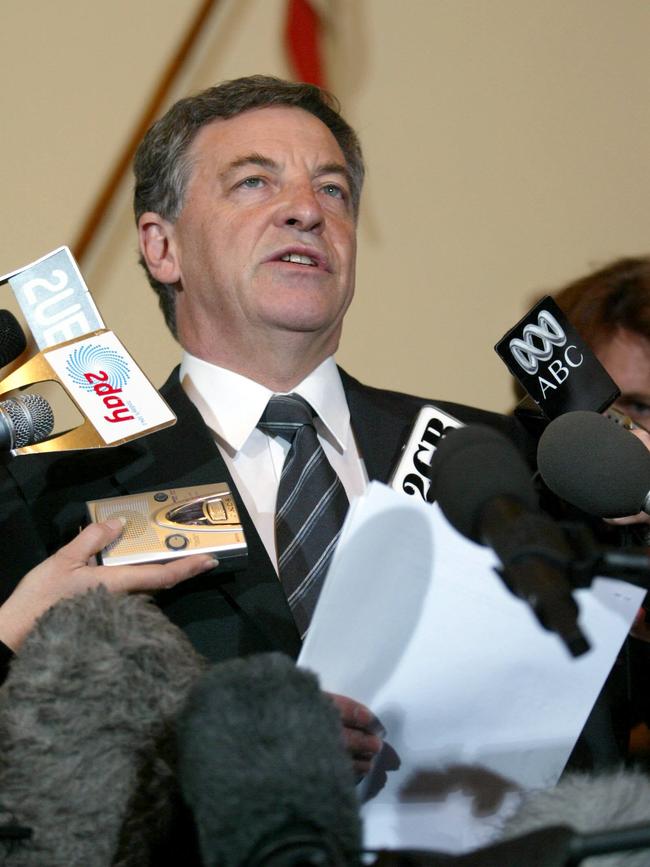
“That ‘this is Joyce’s company. This is Joyce’s decision.’ It is not just Joyce’s decision. Unless that’s the way the board wants him to operate. Everyone comes into every job with a set of skills and experiences. But the world is changing rapidly. Therefore, a board can add a suite of skills and experiences that the CEO may not have. Some CEOs can’t cope with that. Some boards don’t care and they stand aside.”
Hill is also intrigued about the disparate approach of boards to environmental, social and governance (ESG) issues in recent years.
“I thought one of the more interesting things on the corporate side in recent years is the changing expectations of boards in relation to social demands, social responsibilities, and so forth. There is quite a blend across the director community,” he says.
“There are those who still think the bottom line is the only thing to consider, that the best interests of the shareholders is the total of your responsibility.”
Hill says at Viva, where he has worked with CEO Scott Wyatt in the private and public iterations of the firm, he has had to learn as a chairman that he “can’t be too hands on”.
“One of the reasons I left the environment portfolio in government was that too many people were becoming too dependant on me. If you are too hands on, you are not giving others the opportunity. When I came here, I had to appreciate there would be some benefits I could bring but they had to be complementary to the benefits that the executive could bring.”
Despite Viva turning over more than $25bn annually, it was a deliberate decision by Vitol to have a small board when the company went public. There are only five non-executive directors other than Hill, including Macquarie director Nicola Wakefield-Evans.
Just this week, Viva agreed to pay more than $1bn to acquire one of South Australia’s largest private employers, service station chain OTR.
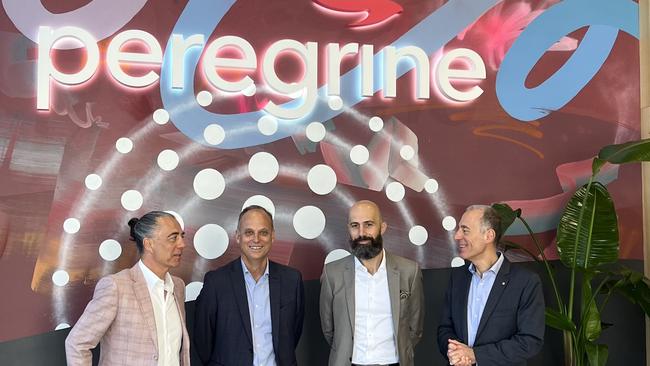
It came after Viva secured approval from the competition regulator in January to proceed with a $300m deal to acquire 710 Coles Express sites nationally.
“As someone who has lived in South Australia all my life, I have watched the Shahins build one of the most exciting and successful convenience businesses in the state, if not Australia,” Hill says of the family that owns Peregrine, the parent firm of OTR.
“The acquisition of OTR will accelerate Viva Energy’s plans to grow its convenience business, and take a leading South Australian retail offer and brand to the rest of the country.”
But ask Hill about the Albanese government’s move late last year to introduce emergency laws capping the price of domestic gas for a year in response to soaring consumer prices, and his reply is less effusive. His mastery of pollie-speak over the decades comes to the fore.
Viva has said it needs clarity about the extent of the government’s long-term energy market intervention before it can make a final call on its plan to build Victoria’s first shipping terminal capable of importing liquefied gas in Corio Bay near Geelong.
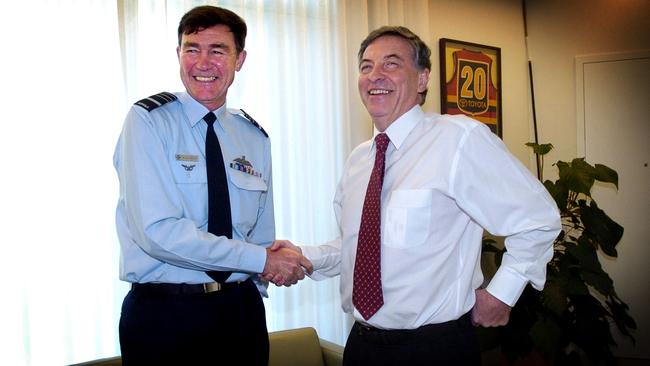
“You’ve got to find a way through. I don’t go on the front page of the newspaper attacking the government, because it’s their job to do their business and it’s our job to run a successful business no matter what the rules are,” Hill says. “I’ve been telling people for quite a long time now that when the price for the consumer is hiked like that, governments will respond.”
His key responsibility as chair has been helping Wyatt build resilience into the company to navigate government policy changes and the energy transition.
In February Viva reported a 66 per cent increase in annual revenues, a 121 per cent rise in net profit and a bumper dividend.
Revenue from its refinery business was up 500 per cent year-on-year. Analysts had expected more, and the segment was hurt by higher energy costs and operating expenses. But Hill is happy with the progress.
“We had our best year last year and that was not just because we had quite high refinery margins, which is not a result of what happens in Australia, but the world. It is because we’ve been building more resilience into the company. Particularly on the commercial side where the company is much stronger now than it was a few years ago,” he says.
Viva has also been helped by the Morrison government’s decision two years ago start paying Ampol and Viva to keep their refineries running amid heightened fears about Australia’s energy security during the Covid pandemic.
Hill still has concerns about the pace of the energy transition and the prospects of energy rationing on Australia’s east coast.
“I’m worried about the economic consequences of a shortfall in gas during this phase of transition. We will still need gas for a long time. Both in support of the transition to renewables, and in supplying industry,” he says.
“Forget the export of gas. Domestically, there’s going to be the need for substantial and reliable gas supply for quite a long time. The projections are now for a shortfall. So if you’re projecting a shortfall and you say that is not in Australia’s best interests, you’ve got to work out how to address it.”
He says Viva is offering a solution with its proposed gas import terminal at Geelong. But it was further delayed last month when the Victorian government requested more details before deciding whether to approve the project. It is already a year behind schedule. Hill plays politician again when asked about the consequences not only for Viva but the nation if the project doesn’t proceed: “The consequences to southeast Australia is that they no longer have that option to help meet the shortfall. We’ll just have to find other options.”
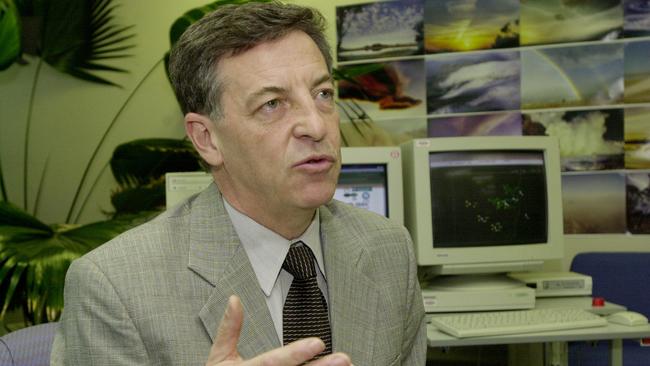
Viva is also exploring opportunities in alternative fuels (such as biofuels and hydrogen), and renewable energy and emission-reduction projects (such as a solar energy farm) at its Geelong Refinery. Construction on an Australian-first public hydrogen refuelling station is set to begin this year at the site. But Hill believes using hydrogen to power heavy vehicle transport will be the limit of the technology for now.
“There’s too much hype (in hydrogen),” he says. “It is going to work in some sectors but I have serious doubts about others. The idea that we will be shipping mass quantities of hydrogen to Japan to be burned for energy, I don’t think it’s ever going to happen. But in the mobility area it has a certain logic. Logically it works better than batteries.”
It is now a decade since Hill, also a former Chancellor of the University of Adelaide, was made a Companion of the Order of Australia for services to government and the parliament.
It is sometimes asserted that politicians have thicker hides than business people when it comes to copping criticism. Hill has certainly developed one. Over a quarter of a century in politics, he spent 14 years in opposition. He is grateful for the 16 years he spent as the leader of the Liberal Party in the Senate, but warns the days of the party system are numbered.
“The big parties don’t have the same power and influence they used to have and both big parties are having trouble adapting to that. But they have to. They can’t just reflect on the past, they’ve got to focus on what they can offer the constituency for the future. The expectations of people are very different now than what they used to be,” he says.
Hill was the Leader of the Government in the Senate for a decade from 1996 to 2006 and believes one of the advantages of the chamber was that the debates were often constructive.
“So you could actually put up different ideas, and you could work them up through committees. Whereas today, it’s a lot harder, you end up in a vicious slanging match. I think the media should take some responsibility for that, but they won’t,” he says pointedly.
He doesn’t miss politics and is saddened that the nature of criticism in political discourse has become more personal.
“Ideas are still being developed by the bureaucracy but the media has become more polarised and I think that frightens some people from daring to have a different point of view,” he says.
“Maybe it reflects a more polarised society? It is the intolerance of a different point of view that I think is unhealthy. There’s a lot of that in the media, more than there used to be … I do think it’s made politics a lot more intrusive and personalised it a lot more. I don’t think that is good.”


To join the conversation, please log in. Don't have an account? Register
Join the conversation, you are commenting as Logout